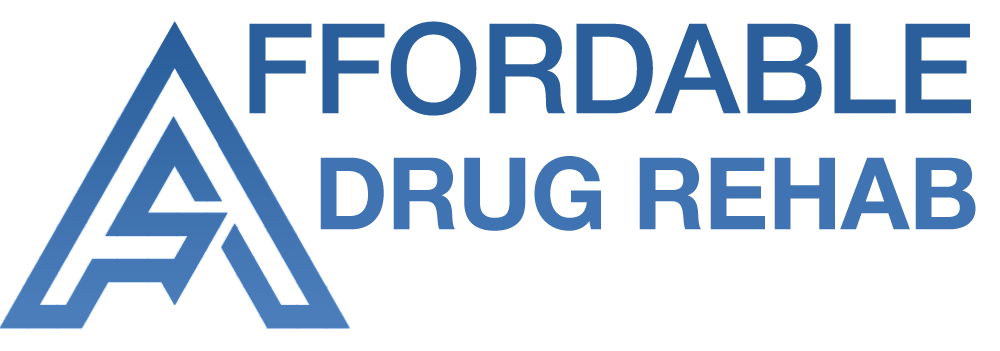Navigating Recovery after a 90 Day Drug Rehab Program
Completing a 90 day drug rehab program is an incredible achievement, marking a significant milestone in the journey towards recovery. However, the real challenge often begins once you step outside the protective bubble of the treatment center and re-enter the world. The transition back into everyday life can be daunting and overwhelming, as you may face old triggers, temptations, and the pressures of daily responsibilities. This is why aftercare is crucial. It serves as the bridge that supports sustained recovery, offering continuous guidance, valuable resources, and a sense of community that helps prevent relapse.
Aftercare programs may include ongoing therapy sessions, support groups, and regular check-ins with a counselor to help you stay on track. Engaging in aftercare can provide the emotional support needed to navigate the complexities of post-rehab life, ensuring that you do not feel alone in your journey. This blog post will explore the importance of aftercare in maintaining long-term sobriety and provide practical tips to help individuals and their loved ones understand its value. By committing to aftercare, you build a foundation for a healthier, more resilient future.
Understanding the Challenges of Transitioning into Everyday Life
Graduating from a 90 day drug rehab program is just the beginning of the recovery journey. During those 90 days, individuals receive constant support and live in a structured environment that helps them focus on healing. The transition to the “real world,” with its myriad of challenges and responsibilities, can seem intimidating by comparison. It’s crucial to remember that the skills and strategies learned during rehab are tools to help navigate this new phase of life. Continued support from friends, family, and support groups can also play a significant role in maintaining sobriety and achieving long-term recovery.
Facing Familiar Environments:
Returning to familiar places and people can trigger old habits and cravings. The comfort of routine, while often soothing, can easily become a risk factor for relapse if not managed properly. Memories associated with these environments might bring back feelings and behaviors from the past, making it crucial to stay vigilant. Developing new, healthier routines and having a strong support system in place can help mitigate these risks and support long-term success.
- Dealing with Emotional Turmoil:
Feelings of guilt, shame, or anxiety about maintaining sobriety are common and can often feel overwhelming. These emotions, if left unaddressed, can be powerful triggers that jeopardize one’s journey to sobriety. It is crucial to acknowledge and work through these feelings, perhaps with the support of therapy, support groups, or trusted friends and family, to build a strong foundation for lasting recovery.
- Finding New Routines:
Establishing a new, healthy routine requires time and effort. It involves not only making changes to habits but also finding sustainable ways to incorporate these changes into daily life. Without the structured schedule of a rehab program, individuals may struggle to fill their time in meaningful ways. This lack of structure can lead to feelings of aimlessness and difficulty in maintaining progress, emphasizing the importance of creating a comprehensive plan to stay on track.
Types of Aftercare Programs
Aftercare is not a one-size-fits-all solution. Different programs cater to various needs, ensuring that each individual can find the right support for their unique situation. Some programs may focus on continuous therapy and counseling, while others might offer support groups, life skills training, or vocational guidance. By providing tailored resources and support, these programs help individuals navigate their recovery journey and build a foundation for long-term success.
- Sober Living Homes:
These are structured environments where individuals can live in a drug-free community while gradually reintegrating into society. They provide a supportive space and a sense of accountability, helping residents build life skills and establish healthy routines. By fostering a sense of community and offering resources such as counseling and job training, these environments play a crucial role in the recovery process.
- Support Groups:
Organizations like Alcoholics Anonymous (AA) and Narcotics Anonymous (NA) offer peer support and a sense of community to those struggling with addiction. These groups provide a safe and non-judgmental environment where individuals can openly discuss their challenges and triumphs. Regular meetings help participants share personal experiences, learn coping strategies, and gain strength from others on the same path. Additionally, the structured programs and mentorship opportunities available in AA and NA can play a crucial role in maintaining long-term sobriety and fostering personal growth.
- Therapy or Counseling:
Continued sessions with a licensed therapist can help address underlying issues and develop effective coping strategies. Therapy provides a safe and confidential space to discuss personal challenges, explore emotions, and track progress over time. By working closely with a therapist, individuals can gain valuable insights, build resilience, and improve their overall mental well-being.
Benefits of Aftercare in Sustaining Long-Term Recovery
Aftercare isn’t just an optional extra; it’s a critical component of successful long-term recovery. It provides ongoing support and resources that help individuals maintain their progress and prevent relapse. Here are some of the key benefits:
- Provides a Supportive Community:
Being part of a group that understands the struggles of addiction can be incredibly empowering. Through regular meetings and open discussions, members can find solace and strength in the shared journey towards recovery. Sharing experiences and challenges not only helps reduce feelings of isolation but also fosters a sense of community and mutual support. The collective wisdom and encouragement from peers can be a vital resource in overcoming obstacles and maintaining sobriety.
- Helps Prevent Relapse:
The first year after a 90 day drug rehab program is particularly vulnerable to relapse due to the numerous challenges and temptations individuals face when reintegrating into their daily lives. During this critical period, aftercare programs play a crucial role by offering continuous support and guidance. These programs help individuals stay focused on their recovery goals, providing them with the tools and resources necessary to navigate potential triggers and maintain their sobriety. Whether through counseling, support groups, or structured activities, aftercare programs ensure that individuals do not feel alone in their journey towards long-term recovery.
- Offers Coping Strategies and Tools:
Workshops, educational sessions, and therapy provide valuable tools to manage triggers and stressors. These resources offer techniques for coping with anxiety and building resilience. By understanding personal triggers and developing effective stress management strategies, individuals can better navigate daily life and improve their overall well-being.
Encourages Accountability
One of the most powerful aspects of aftercare is the accountability it provides. Being answerable to a supportive community can significantly impact one’s commitment to sobriety. This sense of responsibility encourages individuals to stay on track with their recovery goals, knowing they have a network of people who genuinely care about their progress. Regular check-ins and shared experiences within the community foster a deeper sense of belonging and motivation, making the journey to lasting sobriety more attainable.
- Regular Check-Ins:
Attending meetings and counseling sessions keeps individuals accountable for their actions and progress, providing a structured framework for setting goals and receiving feedback. This consistent engagement not only reinforces commitment but also offers a supportive environment to address challenges and celebrate achievements.
- Goal Setting:
Aftercare programs often involve setting and tracking personal goals, providing the necessary motivation and direction to help individuals stay on the right path. These programs may include regular check-ins with counselors, workshops on coping strategies, and peer support groups to ensure continued progress and support.
- Peer Support:
Knowing that others are watching and supporting their progress can be a strong deterrent against relapse. This sense of accountability, combined with the encouragement from loved ones and peers, often helps individuals stay committed to their recovery journey and resist the temptation to revert to old habits. Additionally, the feeling of being part of a community that genuinely cares can provide the emotional support necessary to navigate challenging moments.

Addresses Co-occurring Disorders
Many individuals with addiction also struggle with mental health issues, such as depression, anxiety, or bipolar disorder. Aftercare programs often include comprehensive support for these co-occurring disorders, which is crucial for sustained recovery and overall well-being. By addressing both addiction and mental health, these programs provide a more holistic approach to healing and help individuals build a stronger foundation for long-term success.
- Integrated Treatment:
Addressing both addiction and mental health issues simultaneously provides a more comprehensive approach to recovery. By tackling these interconnected challenges together, individuals can achieve a more balanced and sustainable path to well-being. This holistic approach ensures that underlying mental health conditions are not overlooked, leading to a more effective and enduring recovery process.
- Specialized Therapy:
Access to therapists who specialize in dual diagnosis can make a significant difference in managing both conditions. These professionals have the unique training and expertise to address the complexities of individuals dealing with both mental health issues and substance use disorders simultaneously. Their tailored approach can lead to more effective treatment outcomes and an improved quality of life for patients.
- Medication Management:
Proper management of medications for mental health can significantly improve overall well-being and stability. This involves consistent communication with healthcare providers, regular monitoring of symptoms, and making necessary adjustments to the treatment plan. By doing so, individuals can achieve better control over their mental health conditions, leading to an enhanced quality of life.
Staying Committed to Aftercare
Aftercare programs can only be effective if individuals stay committed to them. These programs provide crucial support and resources that aid in long-term recovery. Here are some tips to help maintain that commitment:
- Make it a Priority:
Recovery should always come first. Prioritizing aftercare activities, such as proper hydration, nutrition, stretching, and rest, ensures continuous progress and helps prevent injuries. This holistic approach to recovery is essential for maintaining peak performance and overall well-being.
- Stay Connected:
Regularly attend support group meetings to connect with others facing similar challenges, keep in touch with therapists or sponsors who can provide guidance and support, and join online communities to stay engaged and find additional resources. This consistent involvement can significantly aid in maintaining your progress and well-being.
- Be Open-Minded:
Different approaches work for different people. It’s important to recognize that what might be effective for one person may not be suitable for another. Be willing to try new strategies and tools offered by aftercare programs, as they often provide a variety of options tailored to meet diverse needs and preferences. By being open to experimentation, you increase your chances of finding the right support that works best for you.
AFFORDABLE DRUG REHAB
Affordable Drug Rehab serves as a catalyst for addiction treatment, offering a comprehensive array of services for individuals aged 18 and above. Our Joint Commission-accredited facility provides medically supervised detox, assessments, short-term residential treatment, PHP, and IOP. Our distinctive approach involves engaging clients in meaningful activities, allowing our staff to better understand each individual and create a customized recovery plan. We also offer secondary interventions and referral services as part of our commitment to holistic healing. Our living accommodations are designed with dignity, comfort, and safety in mind, featuring separate bedroom wings for each gender. Discover compassionate care and effective treatment on your or your loved one’s path to recovery.
Conclusion
Completing a 90 day drug rehab program is a monumental achievement, but it marks just the start of the recovery journey. Aftercare plays an essential role in providing the ongoing support and resources needed to sustain long-term sobriety. By understanding the challenges of transitioning back into everyday life and committing to appropriate aftercare programs, individuals can maintain their sobriety and build a healthier, more fulfilling life.
If you or a loved one has completed a 90 day drug rehab program, make aftercare a priority. Recovery is a lifelong process, and with the right support and dedication, sustained sobriety is achievable. Stay connected, be open-minded, and never give up on yourself or your recovery and contact us today by clicking Affordable Drug Rehab or calling 1 (888) 850-3656. Remember, you are not alone—there is a community ready to support you every step of the way. Keep going, one day at a time.


